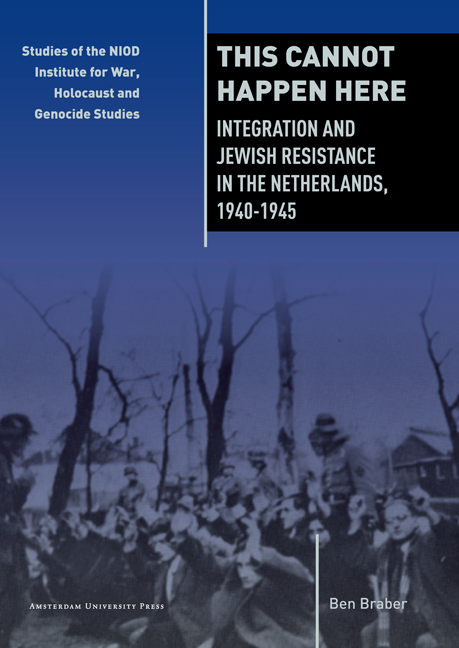Summary
In one of the first books on the history of Jews in the Netherlands during the Second World War, published in 1946, Sam de Wolff described how people reacted to being deported. He depicted an early morning scene in Amsterdam – it's 1942, two years after the Germans invaded the country, and the Nazis have started the deportation of the Jews from the Dutch capital. A group of Jews is getting ready for transportation to a concentration camp. One of them, a young man, starts singing and others join in:
Red dawn. Your sacred glow
has always brought us the day.
Come, you light renewer
into man's dark night.
Let your glory give hope
to those who struggle in the night.
Give them courage in stepping forward
until they reach daylight.
The idea that good prevails over evil returned in De Wolff's 1954 memoirs when he quoted a poem seen on a mural in the building of the General Dutch Union of Workers in the Diamond Industry: “From misery the flame of resistance arises / The flame of resistance will devour the misery”. De Wolff mentioned this quote in his memoirs to explain how it was expected during the first half of the twentieth century that resistance to social misery would result in a regeneration of the Jewish masses. The idea of ending misery was of course also used to encourage the organisation of Jewish workers into trade unions and to promote Socialism. However, both quotations emphasise contemporary hopes, in the case of the first quote a Jewish revival, in the second a rise from social deprivation.
De Wolff's quotes raise numerous questions, including the following. Did suffering automatically cause resistance? What forms did that resistance take? Why did it take these forms? Where they influenced by group traits or individual conditions? And, more specifically, how were Jewish reactions to persecution during the German occupation of the Netherlands determined by the social position of the Jews? This book aims to provide at least part of the answer to that last question by examining Jewish resistance in the Netherlands during the Second World War within the context of the integration of Jews into Dutch society and the personal circumstances of those who took part in Jewish resistance.
- Type
- Chapter
- Information
- This Cannot Happen HereIntegration and Jewish Resistance in the Netherlands, 1940–1945, pp. 1 - 14Publisher: Amsterdam University PressPrint publication year: 2013



